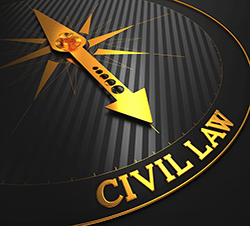Arizona Civil Court Records Search
Arizona's civil court system is designed to resolve non criminal disputes between individuals, organizations, or government entities. From family law matters to contractual disagreements, civil courts handle a wide range of cases. This article explores the different courts managing civil cases in Arizona, the types of cases they address, how to conduct a civil court case search, and the availability of civil court records.
Arizona Civil Court Structure
Arizona's court system includes several levels that handle civil cases, depending on their complexity and monetary value. Here is an outline of the various civil divisions:
Municipal Courts (City Courts): While primarily focused on criminal cases, these courts may handle civil legal matters related to city ordinance violations or small claims within their jurisdiction.
Justice Courts: This division also handles small claims, as well as civil lawsuits where the amount in controversy is $10,000 or less. These courts are designed for quick and cost-effective resolution of minor disputes. Each county has it's own justice courts, such as the Maricopa County Justice Courts, where you can run a case search for AZ civil court records.
Superior Courts: Serve as the trial courts for more complex civil matters, including:
Family law cases such as divorces, child custody, and child support.
Probate cases, including wills, estates, and guardianship.
Civil lawsuits exceeding $10,000 in controversy.
Arizona Court of Appeals: Reviews decisions from Superior Courts in civil cases, which mainly focuses on legal issues and errors, rather than re-evaluating evidence or testimony.
- Arizona Supreme Court: Handles appeals from the Court of Appeals and cases of statewide importance, particularly those involving significant legal principles.
Types of Civil Cases Heard in Arizona
Arizona civil courts address a wide range of disputes, including but not limited to:
- Family Law Division:
Divorces
Child custody and visitation
Child and spousal support
Domestic violence orders of protection
Probate and Guardianship:
Wills and trusts
Estate administration
Guardianship and conservatorship for minors or incapacitated adults
Contract Disputes:
Breach of contract
Real estate disputes
Business disagreements
Personal Injury:
Medical malpractice
Slip and fall incidents
Product liability
Landlord-Tenant Disputes:
Evictions
Lease disagreements
Small Claims:
- Minor financial disputes involving $3,500 or less (handled in Justice Courts).
How to Conduct an Arizona Civil Court Case Search
To obtain information about a civil court case in Arizona, there are multiple options available for public access. Here are the options outlined and description of what resources they offer:
Arizona Judicial Branch’s Public Access to Court Information Website: This online resource allows eAccess - Case Searches that are publicly accessible to search for case information by name, case number, or the respective attorney name.
County Clerk of the Superior Court: Visit the Clerk’s Office in the county where the case was filed to request records in person, online, or by mail. Some counties also provide their own case lookup portals.
- Justice and Municipal Courts: Check with the specific court where the case was filed. Many courts maintain online case information portals or allow requests in person.
Availability of Civil Court Records
While many civil court records are publicly accessible, some are sealed or restricted due to privacy concerns or legal protections. Here is an overview:
Publicly Available Records:
Case filings and dockets
Judgments and court orders
Hearing schedules
Restricted or Sealed Records:
Juvenile cases (e.g., guardianship or child custody involving minors)
Adoption records
Cases involving sensitive personal information, such as domestic violence or protective orders
- Financial disclosures in divorce proceedings (may be partially redacted)
Those that wish to gain access to restricted records must obtain court permission, which generally requires demonstrating a legitimate need. You may need an attorney to assist you with this unless you are directly involved in the respective civil proceeding.
Conclusion
Arizona civil courts provide a structured framework for resolving disputes across various domains, including family law, personal injury, and contract issues. Understanding the court system, types of cases, and processes for accessing case information helps individuals navigate legal matters effectively. Whether conducting a case search or seeking sealed records, it is essential to know the procedures and limitations involved.


